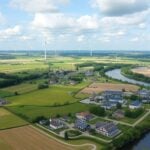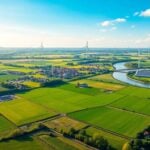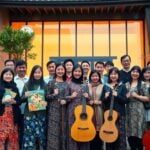Deadline: 4 November 2024
The U.S. Agency for International Development (USAID) established the Science for Development Fellowships program (SDF), as a two-year experiential professional development opportunity for American scientists and engineers to work at USAID and apply their expertise and research skills to inform the U.S. government’s international development activities and support their success.
Goals
- Expanding and improving capacity for the application of science, technology, and innovation across USAID’s development sectors is vital to achieving the Agency’s broad and ambitious global development objectives. The Science for Development Fellowships (SDF) program is designed to accomplish this through three strategies:
- Increasing direct application of S&T knowledge and expertise at USAID by engaging Science for Development Fellows across the programming of the Agency.
- Strengthening the professional capabilities of participating scientists and engineers to inform, develop, and advance evidence-based practices and policies that improve international development activities and results.
- Establishing a network of higher education institutions (HEIs) committed to advancing STEMM education that contributes to creating solutions to global challenges, and supports SDF to leverage the experience and skills of their STEMM graduate students, postdocs, and faculty.
Two-Year Commitment
- SDF provides a two-year immersive experience with expectation for commitment to and completion of the full 24 months. Fellows are assigned to specific USAID offices for the two years. Fellows who complete the two-year period in good standing may have the opportunity to continue for a full third year at USAID as a Advisory Fellow.
Career Stage
- The program is generally focused on early- to mid-career scientists and engineers, from those completing a qualifying degree by the start of the fellowship up to approximately 10 years beyond receipt of a qualifying degree.
Eligibility Criteria
- The SDF program is open to individuals who hold a qualifying doctorate degree across a broad range of STEMM disciplines (science, technology, engineering, math, medicine), including social sciences. In addition, individuals who hold a master’s of science (MS) in an engineering discipline are eligible (such as an MS in biomedical engineering, electrical and software engineering, environmental engineering, industrial and systems engineering, material and sustainability engineering, mechanical engineering).
- Computer and Data Sciences (including artificial intelligence, bioinformatics, cybersecurity, data analytics)
- Engineering (for example, civil engineering, biomedical engineering, atmospheric sciences, environmental engineering, materials sciences)
- Interdisciplinary Sciences (such as climate science, environmental science, geography, international relations, oceanography, urban policy or planning)
- Life Sciences (including agriculture, biology, botany, ecology)
- Mathematical Sciences (for example, astronomy, pure and applied mathematics, statistics)
- Physical Sciences (such as chemistry, earth sciences, hydrology, physics)
- Public Health and Medicine (including dentistry, nursing, pharmacy, veterinary medicine)
- Social Sciences (for example anthropology, economics, linguistics, political science, psychology, sociology)
- U.S. Citizenship
- Applicants must hold U.S. Citizenship (permanent residency and green card status does not qualify). SDF welcomes applicants with dual citizenship. It is important to understand that dual citizenship may lead to security clearance delays. Security clearance delays may affect the ability to begin a fellowship placement.
For more information, visit USAID.


























